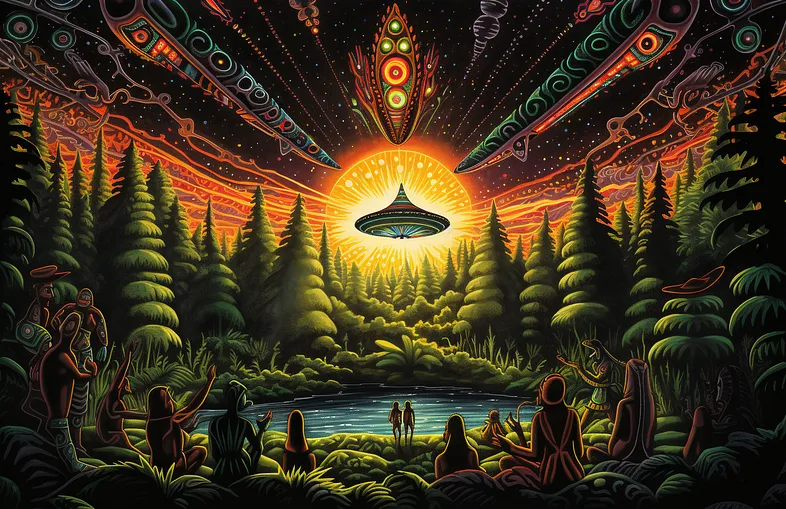A Dancing with Ghosts: The Haunting Presence of Ancestral Memory in "A Yellow Raft in the River"
##semicolon##
Multigenerational##common.commaListSeparator## Ancestral Legacy##common.commaListSeparator## Resilience's##common.commaListSeparator## Cultural Reclamation##common.commaListSeparator## Complexities##article.abstract##
Michael Dorris' "A Yellow Raft in the River" embarks on a multigenerational odyssey within the Mississippi River's embrace, resonating with the ancestral legacy of three Native American women - Christine, Ida, and Rayona. Anchored in ancestral memory, this narrative intertwines dispossession's anguish, resilience's fortitude, and an enduring quest for wholeness. While extensively analyzed, the intricate nexus between ancestral memory, personal identity, and collective narratives in the novel remains underexplored. This research examines the transmission of ancestral memory's shaping influence, the characters' engagements with the past, and the novel's contribution to discussions on cultural reclamation and historical justice within Indigenous communities. Employing qualitative methods, including textual analysis and Indigenous literary theory, this study unravels the complexities of ancestral memory, enriching comprehension of identity, cultural resurgence, and historical rectitude in today's world.
##plugins.themes.default.displayStats.downloads##
##submission.citations##
Anzaldua, G. (1987). Borderlands / La Frontera: The New Mestiza. Aunt Lute Books.
Deloria Jr., V. (1969). Custer Died for Your Sins: An Indian Manifesto. Macmillan.
Deloria Jr., V. (1997). Red Earth White Lies: Native Americans and Environmental Destruction. Yale University Press.
Dorris, M. (1987). A Yellow Raft in the River. Harper & Row.
Gilroy, P. (2004). Postcolonial Melancholia. Duke University Press.
Hemming, J. (1978). The Conquest of the Maya. Macmillan.
hooks, b. (1990). Yearning: Race, Gender, and Cultural Politics. Routledge.
Jacobs, M. D. (1999). White Mother White Daughters: Ethnicity, Racism, and Psychohistory. Rutgers University Press.
Momaday, N. S. (1968). House Made of Dawn. Harper & Row.
Murphy, B. (1993). Haunting Memory in Michael Dorris's A Yellow Raft in the River. American Indian Quarterly, 17(4), 387-400.
Nelson, M. (1995). American Indian Women in Historical Fiction: Narrative Identity and the Politics of Representation. American Indian Quarterly, 19(4), 585-605.
Smith, A. (1984). Conquest and Survival: A Feminist Rethinking of American Colonialism. Westview Press.
St. Clair, A. (2010). Treaty Medicine: Traditional Aboriginal Healing in Today's World. UBC Press.
Tuck, E., & Heatherington, J. (2012). Decolonization Is Not a Metaphor. Decolonization: Indigeneity, Education, & Society, 3(3), 1-40.
Vizenor, G. (1994). Manifest Manners: Post Indian Warriors of Survivance and Nation-Making. University of Nebraska Press.
Warrior, R. C. (1995). Tribal Secrets: Recovering American Indian Oral Traditions. University of Minnesota Press.
Williams, R. A., & Smith-Hogan, P. (1996). American Indian Religious Lives. Oxford University Press.

##submission.additionalFiles##
##submissions.published##
##submission.dataAvailability##
Open Access




